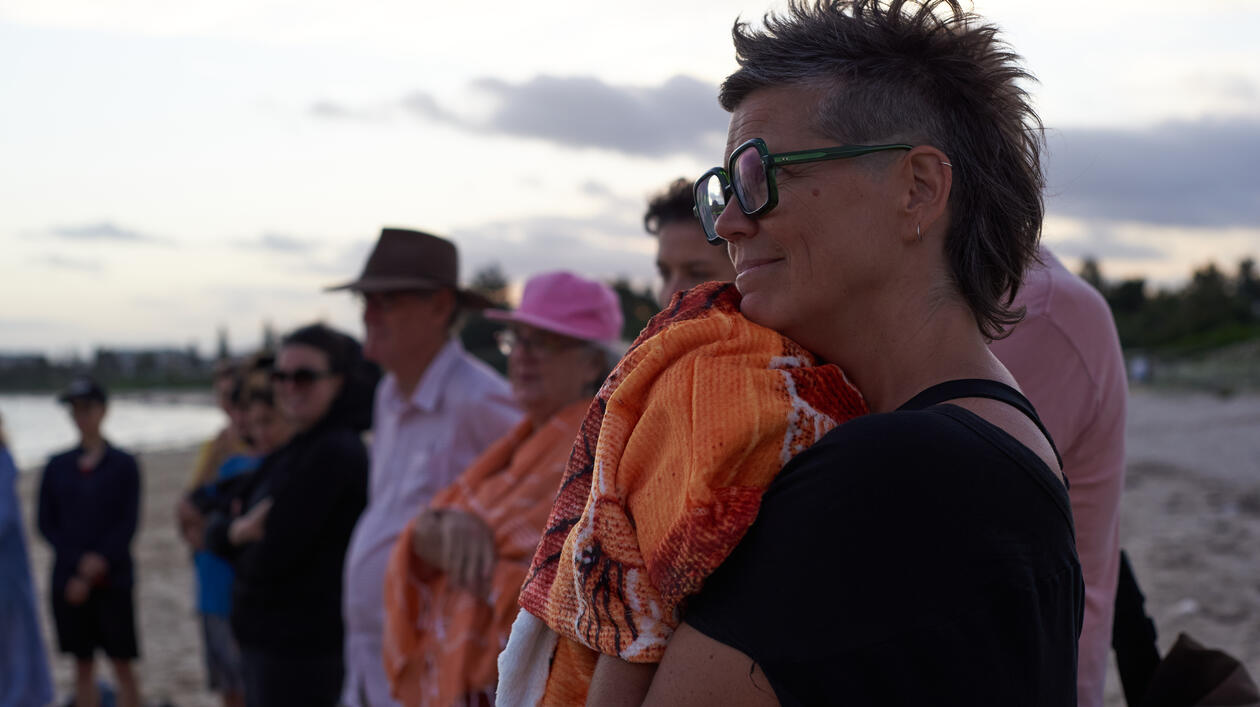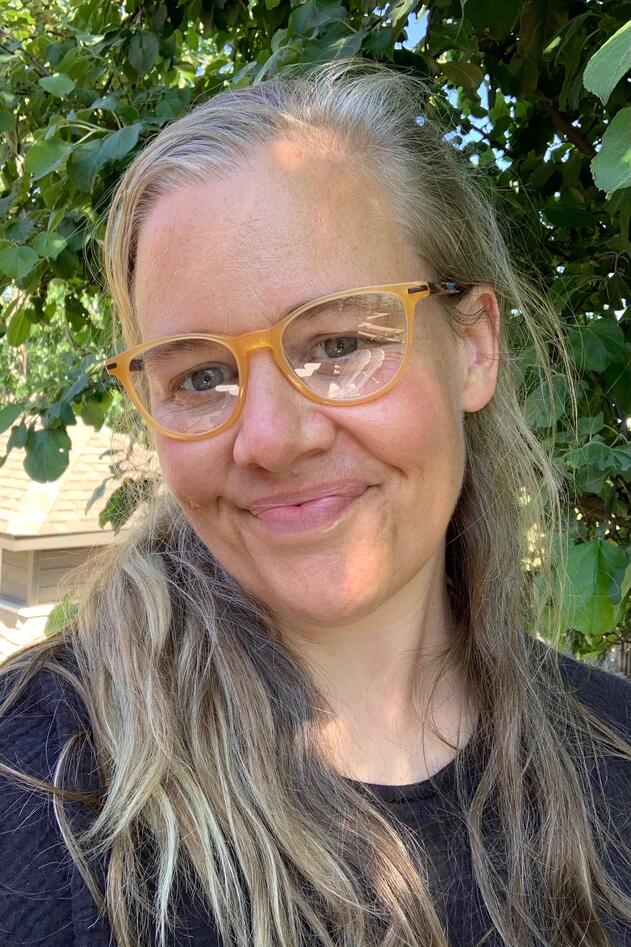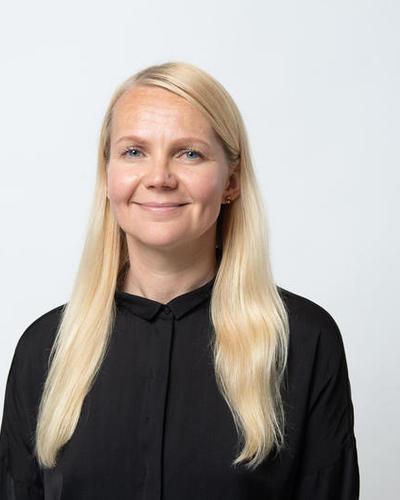Feminist Visions for Justice in Times of Environmental Crises
Dette PhD-kurset, som er organisert av InterGender og SKOK, utforskar feministiske visjonar for miljørettferd og tilbyr eit rammeverk for tenking rundt skjeringspunktet mellom feministisk teori og miljørettferd.

Hovedinnhold
Kurset blir halde på engelsk, og difor finn du informasjonen under på engelsk:
Description
The massive environmental crises such as global climate change, extinction and natural resource depletion, the poisoning of communities through pollution, and the displacement of communities after natural disasters are intimately connected to bodily-bound ideas about sex, gender, and sexuality.
How might we understand such ecological and climate crises, rooted in relations of power, including gender, race, and colonialism through a feminist lens?
This course explores feminist visions for environmental justice, at both local and planetary scales, and offers a framework for thinking about the intersections between feminist theory and environmental justice.
Organizers
InterGender, International Consortium for Interdisciplinary Feminist Research Training
Local InterGender course organizer:
Centre for Women’s and Gender Research (SKOK), University of Bergen, Norway
Course coordinators
InterGender consortium coordinator:
Edyta Just (edyta.just[at]liu.se)
Local InterGender course coordinators:
Redi Koobak (redi.koobak[at]uib.no)
Kari Jegerstedt (kari.jegerstedt[at]uib.no)
Teachers
Astrida Neimanis, Associate Professor and Canada Research Chair in Feminist Environmental Humanities, University of British Colombia – Okanagan Campus on unceded Syilx Okanagan territory, Canada
Renée Valiquette, Assistant Professor, Department of Gender Equality and Social Justice & Department of Child and Family Studies, Nippissing University, Canada
Redi Koobak, Postdoctoral Research Fellow, Centre for Women’s and Gender Research, University of Bergen, Norway
Schedule
NB! Time zone: CET
Monday 13 December 2021
12:00-13:00 Welcome words and introductions
13:00-14:00 Lecture: Redi Koobak: “What Might it Mean to “Know Well”? Introduction to Feminist Visions of Collaborative Survival”
14:00-14:30 Break
14:30-15:30 Seminar with Redi Koobak
15:30-16:00 Break
16:00-17:00 Lecture: Astrida Neimanis: “Weathering: Feminist Approaches to Climate Catastrophe”
17:00-17:15 Break
17:15-18:15 Seminar with Astrida Neimanis
Tuesday 14 December 2021
13:00-15:00 Group work with feedback on course participants’ papers (three groups)
15:00-16:00 Break
16:00-17:00 Lecture: Renée Valiquette: “Anthropocenic Reckoning in the Age of Otherness”
17:00-17:15 Break
17:15-18:15 Seminar with Renée Valiquette
Wednesday 15 December 2021
13:00-15:00 Group work with feedback on course participants’ papers (three groups)
15:00-15:15 Break
15:15-16:00 Evaluations
Lecture abstracts and reading lists
Astrida Neimanis
“Weathering: Feminist Approaches to Climate Catastrophe”
What does it mean to claim that climate change is a feminist issue? Drawing on the action-concept of "weathering" (Neimanis and Hamilton, 2018), this lecture examines the intersection of climate catastrophe and feminist thinking/practice. We will explore the proposition that a fulsomely feminist approach requires us to understand climate change and the other crises that subtend it as embodied phenomena, where "the weather" is always more-than-meteorological. We will also ask about how understanding weather as a commons can generate feminist insights into questions of difference, solidarity, proximity, strangeness and intimacy, all as part of the fraught project of belonging. To pursue these questions, we will examine feminist, Black, decolonial, crip and queer theories, artworks and non-academic texts.
Reading list
Neimanis, A. “The Weather Underwater: Blackness, White Feminism and the Breathless Sea” Australian Feminist Studies, 2019.
Neimanis, A. and Walker, R. “Weathering: Climate Change and the Thick Time of Transcorporeality” Hypatia, 2013.
Neimanis, A. and Hamilton, J. “Weathering” feminist review, 2018.
Neimanis, A, Hamilton, J. and Zettel, T. “Feminist Infrastructure for Better Weathering” Australian Feminist Studies – forthcoming.
Ensor, S. “Queer Fallout: Samuel Delaney and the Politics of Cruising” Environmental Humanities, 2017.
Berlant, L.. “The Commons: Infrastructure for troubling times” EP&D: Society and Space, 2016.
Sharpe, C. In the Wake: On Blackness and Being. Duke.
Simmons, K. Settler Atmospherics. Cultural Anthropology Fieldsights.
Verlie, B. Learning to Live with Climate Change, Routledge, 2021.
Chen, Mel Y. “Feminisms in the Air.” Signs Journal (Special Issue on COVID-19, 2020)
Rankine, C. “The Weather” New York Times Review of Books, 2020.
Renée Valiquette
“Anthropocenic Reckoning in the Age of Otherness”
The temptation for many scholars and activists responding to worsening ecological crises is to advocate for "better" evolutions of Western modernity, to build more muscular environmentalisms that scream and push for unilateral solutions. Such approaches prolong and exacerbate colonial and patriarchal forms of power and politics. Feminist and anti-colonial engagements with the Anthropocene, by contrast, expose the vanity, hostility and profiteering of the “modern” project, administered by a form of “agency that outstrips its capacity to manage itself, which wrecks, pillages, loots, and destroys, that has very little idea what it is doing” (Bird Rose 2013, 3). Through a feminist, anti-colonial lens, the Anthropocene becomes an “Age of Otherness,” a period of necessary undoing, unsettling and reckoning. Ontologically and phenomenologically speaking, feminist notions of otherness better describe the disjunctures, disruptions and unpredictability of current ecological conditions. A posthuman feminist otherness also helps engender better Anthropocenic ethics by emphasizing humility, relinquishment and openness to other(ed) ways of being, thinking and relating. And finally, feminist, anti-colonial otherness nourishes the speculative imagination in order to “breathe in the fire,” to fathom and conjure joyful multi-species relationality in and for ruinous times. In recognizing and safeguarding the inalienable othernesses of our present and future, even with all the known destructions and injustices under and on the way, something better remains possible.
Reading list:
Catriona Sandilands, Not Just Pussy Hats on the Climate March: Feminist Encounters with the Anthropocene.
Joanna Zylinska, The End of Man: A Feminist Counterapocalypse (78 pages)
Jemma Deer, Radical Animism: Reading for the End of the World (224 pages)
Julietta Singh, Unthinking Mastery: Dehumanism and Decolonial Entanglements (216 pages)
Leanne Betasamosake Simpson, Resisting the Power Structures That Keep Colonialism Alive
Redi Koobak
“What Might it Mean to “Know Well”? Introduction to Feminist Visions of Collaborative Survival”
Inspired by a growing body of work that reconsiders ecofeminist interventions and proposes that we think in terms of newer posthuman futures, this introductory lecture will examine the role of discourses on nature in shaping the situated and site-specific understandings of gender, sexuality, class, and race. We will map out some of the ways in which feminist and queer academics have approached the possibilities and challenges of thinking gendered, sexualised, and raced bodies in and through the environment. We will discuss how these ideas might help us envision ways of “knowing well” (Code 1991) in order to work towards justice and “collaborative survival” (Tsing 2018).
Required readings
Seager, Joni. 2003. “Rachel Carson Died of Breast Cancer: The Coming of Age of Feminist Environmentalism.” Signs: Journal of Women in Culture and Society 28(3): 945-972. (27 pages)
Mann, Susan A. 2011. “Pioneers of U.S. Ecofeminism and Environmental Justice.” Feminist Formations 23(2): 1-25- (25 pages)
Tuana, Nancy. 2008. “Viscous Porosity: Witnessing Katrina.” In: Stacy Alaimo and Susan Hekman (eds) Material Feminisms. Bloomington: Indiana University Press, pp. 188-213. (25 pages)
Alaimo, Stacy. 2010. Bodily Natures: Science, Environment, and the Material Self. Bloomington and Indianapolis: Indiana University Press, pp. 1-25. (25 pages)
Tsing, Anna, Lowenhaupt. 2015. The Mushroom at the End of the World: On the Possibility of Life in Capitalist Ruins. Princeton and Oxford: Princeton University Press, pp. vii-43. (49 pages)
Recommended readings
Sandilands, Catriona. 1999. “Introduction. Mothers, Natures and Ecofeminists.” and “A Genealogy of Ecofeminism.” The Good-natured Feminist: Ecofeminism and the Quest for Democracy. Minneapolis and London: University of Minnesota Press, pp. xi-27. (36 pages)
Mortimer-Sandilands, Catriona and Erickson, Bruce. 2010. “A Genealogy of Queer Ecologies.” In Queer Ecologies: Sex, Nature, Politics, Desire, ed. Catriona Mortimer- Sandilands and Bruce Erickson. Indiana University Press, pp. 1-47. (47 pages)
Gaard, Greta. 2014. “Indigenous Women, Feminism, and the Environmental Humanities.” Resilience: A Journal of the Environmental Humanities 1(3). (15 pages)
Barad, Karen. 2008. “Posthumanist Performativity: Toward an Understanding of How Matter Comes to Matter.” In: Stacy Alaimo and Susan Hekman (eds) Material Feminisms. Bloomington: Indiana University Press, pp. 120-154. (34 pages)
Haraway, Donna. 1988. “Situated Knowledges: The Science Question in Feminism and the Privilege of Partial Perspective”. Feminist Studies 14(3), pp. 575-599. (24 pages)
Haraway, Donna. 2016. Staying with the Trouble: Making Kin in the Chthulucene. Durham and London: Duke University Press.
Bionotes
Astrida Neimanis is a cultural theorist working at the intersection of feminism and environmental change. She is Associate Professor and Canada Research Chair in Feminist Environmental Humanities at the University of British Colombia – Okanagan Campus on unceded Syilx Okanagan territory, in Canada. Her research focuses on bodies, water, and weather, and how they can help us reimagine justice, care, responsibility and relation in the time of climate catastrophe. Her most recent book, Bodies of Water: Posthuman Feminist Phenomenology is a call for humans to examine our relationships to oceans, watersheds, and other aquatic life forms from the perspective of our own primarily watery bodies, and our ecological, poetic, and political connections to other bodies of water. Additional research interests include theories and practice of interdisciplinarity, feminist epistemologies, intersectionality, multispecies justice, and everyday militarisms. Astrida’s research practice includes collaborations with artists, writers, scientists, makers, educational institutions, and communities, often in the form of experimental public pedagogies. Her writing can be found in numerous academic journals and edited collections, artistic exhibitions and catalogues, and online media.
Dr. Renée Valiquette (she/her) is a philosopher with interests in an array of overlapping and intersecting areas. Her environmental humanities research uses post-structuralist ideas to rethink and reimagine multi-species relationality. She has been a faculty member at Nipissing University in Canada since 2005, where she teaches in the departments of Gender Equality & Social Justice and Child & Family Studies. In her pedagogical research, Renée advocates for better use of public universities as centres for crises management, spaces where communities can gather and reinvent future life and death. To this aim, Renée, along with her colleague and research partner Dr. Sal Renshaw, developed a series of experimental interdisciplinary courses designed to teach poetic subjectivity, deep collaboration, and immanent ethics. The 2021-2022 offering is hopefully titled DREAMS. Renée also helped found the Network for Teaching and Learning Differently at Linköping University in Sweden, where she and Sal will offer the first international iteration of their interdisciplinary course in the Spring, 2022. Renée is also the co-founder of N/NOIR, the Norther/Nordic Organization for Interdisciplinary Research, a research and education group seeking to further collaborative efforts between Canada and Nordic nations. Renée is the 2021 recipient of The Chancellor’s Award for Excellence in Teaching.
Redi Koobak is a cultural studies scholar working at the intersections between postsocialist and postcolonial feminist theorizing and the discourses of gender, race, ethnicity and sexuality. She is Postdoctoral Research Fellow at the Centre for Women’s and Gender Research (SKOK) at the University of Bergen in Norway. She has worked as Assistant Professor in Gender Studies at Linköping University, Sweden and as Visiting Lecturer in Feminist Studies at the University of California, Santa Cruz, USA. Her research interests include feminist visual culture and media studies; intersections of postcolonialism and postsocialism; cultural representations of gender, war, and nationalism; feminist approaches to environmental crises; transnational and local feminisms; and creative writing methodologies. She is the editor, with Madina Tlostanova and Suruchi Thapar-Björkert, of the volume Postcolonial and Postsocialist Dialogues: Intersections, Opacities, Challenges in Feminist Theorizing and Practice (Routledge, 2021).
Applications
The application deadline has now passed. PhD students and advanced Master’s students were eligible to apply.
Applications had to be written in English and include:
* name, affiliation, full address, e-mail, phone
* name and affiliation of PhD supervisor or MA supervisor
* brief CV
* description of PhD project or MA project (1-2 pages)
* motivation: why do you want to participate in the course (1-2 pages)
* please, indicate if you are in the first/middle/last phase of your PhD research or if you are advanced MA student
Application deadline: 7 November 2021.
Maximum number of participants: 30


